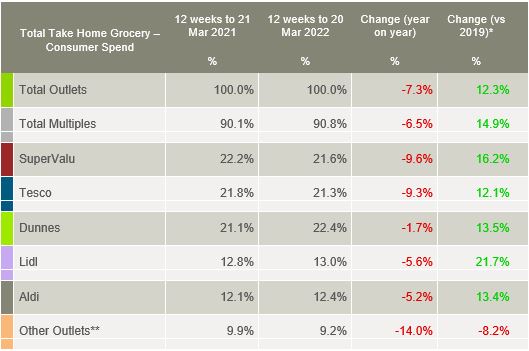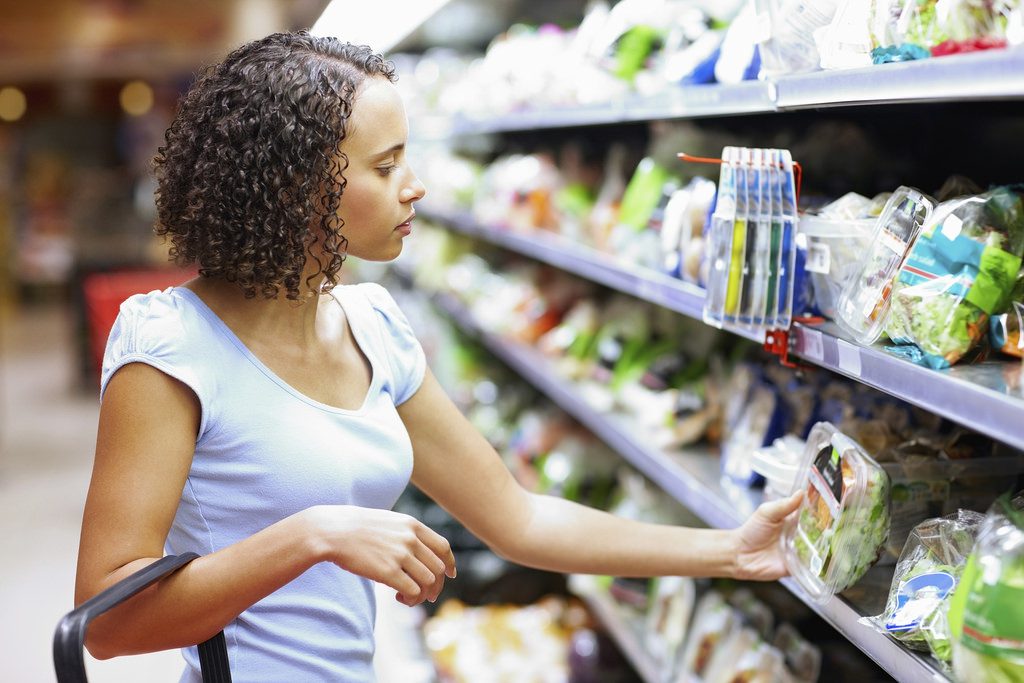Grocery inflation in Ireland is the highest it has been since October 2013 at 3.7%, according to new statistics released by data analytics company, Kantar.
Cost increases have pressured retailers to push prices up across the board, while the number of products sold on promotional offers has fallen by 5.7%, as retailers try to mitigate supply chain pressures, reports Kantar.
“We’ve seen a marked increase in the average price of staples like bread, butter and toilet paper over the last 12 weeks,” said Emer Healy, senior retail analyst with Kantar.
These price rises have coincided with the end of pandemic-related lockdowns, which is causing overall grocery sales to drop as more people consume a higher volume of their food intake on the go.
In the period between March 7 to April 3, 2022, take-home grocery sales fell by €78.2 million, a decrease that Kantar says can be linked back to the removal of Covid-19 restrictions. Healy commented:
“Not only are people heading back to the office, but they’re also enjoying returning to pubs, cafes and restaurants, and as a result are picking up more food while on the go, rather than from the supermarkets.”
There was also a 7.3% decrease in grocery sales in the 12-week period between December 20, 2021 to March 20, 2022, which all retailers experienced.
However, sales were still higher than in 2020 although only slightly, as the comparison includes a record-high demand for groceries before the national lockdown in March 2020.

Dunnes Stores has retained its position as Ireland’s largest grocer holding a 22.4% market share, it’s followed by SuperValu and then Tesco, with each claiming market shares of 21.6% and 21.3% respectively.
Lidl follows Tesco, with a 13% share of the market, while Aldi holds 12.4%.
“The competition between the grocers is ramping up as people hunt for the best deals. Those grocers with strong messaging on lower average prices and promotional offers are best placed to come out on top,” said Healy.
According to Kantar, grocery inflation is now the main driver behind changes in consumer behaviour, as higher prices and fewer promotional offers push them to seek out cheaper alternatives such as own-brand products.
“Retailers’ own lines now account for 46.3% of total grocery sales. Headlines around shortages of pasta and flour have also seen sales of those products soar, with both categories boosted by 22% and 30% respectively during the month of March,” Healy said.
Kantar outlines that the pandemic has altered consumers’ habits and it is unlikely that people will revert back to their pre-pandemic practices.
A significant growth in demand has led to all retailers in Ireland now offering some form of online shopping.
The proportion of the ‘couples with no children’ demographic that buys their groceries online almost doubled to 26% in March 2022. It is also estimated that by 2024, online shopping will hold a 6.6% share of total grocery sales.
